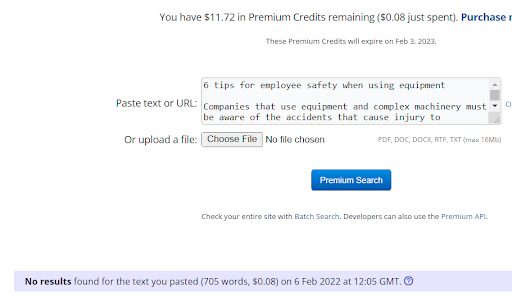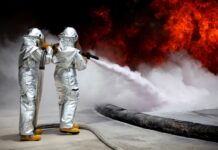Companies that use equipment and complex machinery must be aware of the accidents that cause injury to employees. Most of these facilities or industries need to implement safety training programs to ensure the workers know the potential risks of operating industrial equipment and the operation. Also, the employees should adhere to the regulations for equipment in the workplace. Plus, assess the risks and take steps to avoid them. Therefore, if you work with machinery, here are tips to keep in mind and ensure you are safe while using the equipment. Also note, for those who are looking for work in this area, open positions process safety consultant possible to view on the site Jooble.
- Safe use of equipment, machinery, and tools
Employers need to ensure all equipment employees use at work is safe and does not pose any long-term hazard or risk to their health. Plus, employers should ensure the employees have enough training and knowledge to use the equipment safely. Thus, ensure the equipment is suitable for the job you are using it for, it is inspected before using it, and it is well maintained to keep it safe at all times. More importantly, use handheld tools safely through wearing guards and providing protective clothing. As you deal with old equipment, handle it well and safely.
- Run a maintenance program

There are areas you need to monitor to comply with protective rules. Such as carrying out a risk assessment. Maintenance, compatibility, use, storage, and training of employees. More importantly, keep records of all the PPEs equipment and report damage and loss to the employer. In some circumstances, if you fail to comply with PPEs regulations, you can attract a fine and in extreme cases, a prison sentence or an unlimited fine of up to two years.
- Work safely at height or confined spaces
In some companies, the operations involve working below, above, or in a confined space. Thus, you need to follow the rules to minimize the risks of injury. So, assess the risks of working at height and plan the work carried out. Thus, ensure the work platforms and walkways are safe. Sometimes the accidents do not happen to those working on the surfaces but to the cleaning, maintenance, demolishing, and inspection individuals. Plus, if working in confined spaces, ensure you comply with the confined spaces regulations in your area.
- Protect yourself and your employees

Employees have different roles and may need different protective equipment. Employers are obliged to provide the employees with the right equipment where necessary. So, for the health and safety and employees, workers must use PPE to stay protected. The employers should provide this free. But if you are self-employed, you obtain it for yourself. Also, before you buy equipment, consider what is needed and whether separate items are compatible. For instance, does using protective goggles make it hard for a respirator to fit correctly?]. You can consider industrial equipment aftermarket service software also in order to fullfil your requirements.
- Carry out risk assessments
To manage and assess any potential risk in the workplace, carry out a risk assessment. For example, risks caused by workplace equipment risks likely to cause upper limb disorders and those requiring the use of personal protective equipment. Also, there are risks of computer workstations, confined spaces, and risks when working at height. When you identify the problem, take the steps and minimize the risk to employees. Once you identify any issue, minimize the risk to employees. Such as assuming appropriate warning signs, ensuring correct equipment for the job, and providing training to employees, among other things.
- Buy the correct personal protective equipment

Every employer must provide the proper personal protective equipment for work. For instance, protect the head from a crash, bump caps, safety helmets, and hairnets. Also, if the worker is exposed to noise levels, you have to provide noise protection. Also, the right PPE for eye safety is face shields and goggles. Protection of arms and hands is vital. So your workers need mitts, gloves, gauntlets, armlets, cuffs, and elbow protectors. Safety boots and wellington boots are best for the protection of feet. Plus, boiler suits, overalls, halters, leggings, and high visibility clothing protect the body. So, every business should ensure the equipment is well maintained and used correctly to reduce damage and accidents. Also, employees should adhere to rules and regulations and wear the right PPEs.








